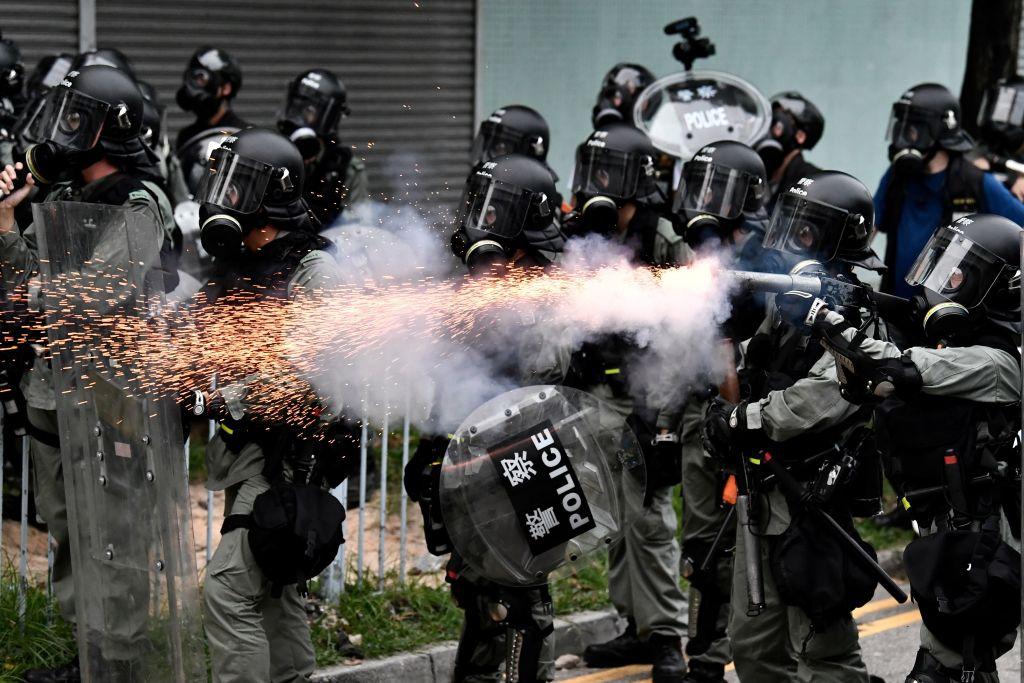Violence again erupted in Hong Kong’s Yuen Long on the evening of July 27 after hundreds of thousands of protesters gathered for a peaceful march in the afternoon to oppose an attack a week earlier by suspected triad members at the local metro station.
Amnesty International issued a statement following the violence, saying that the actions of the local police had been “unacceptable.”




